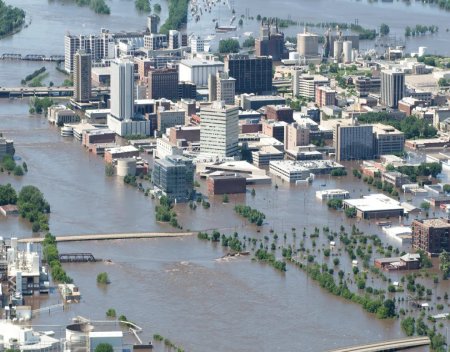
Does How My Home Was Built Affect My Flood Insurance Rates?
Flood zones pose various risks to both property and human safety.
Here are some of the key risks associated with flood zones: Property Damage: Floodwaters can cause significant damage to homes, buildings, and infrastructure.
Water infiltration can lead to structural damage, including foundation cracks, weakened walls, and compromised electrical systems.
Additionally, floodwaters can destroy personal belongings, furniture, appliances, and vehicles.
Health and Safety Hazards: Floodwaters often contain contaminants such as sewage, chemicals, and debris, posing health risks to individuals exposed to them.
Contact with contaminated water can lead to illnesses, skin infections, and gastrointestinal problems.
Furthermore, flooded areas may become breeding grounds for disease-carrying insects like mosquitoes, increasing the risk of vector-borne diseases such as malaria, dengue fever, and Zika virus.
Displacement and Evacuation: Residents living in flood-prone areas may face the risk of displacement during flooding events.
Evacuation orders may be issued to ensure the safety of individuals and families in high-risk areas.
Displacement can disrupt daily routines, cause emotional distress, and lead to temporary housing challenges.
Economic Impact: Floods can have significant economic consequences for individuals, businesses, and communities.
Property damage and business interruptions can result in financial losses, including repair costs, lost income, and decreased property values.
Infrastructure damage may disrupt transportation networks, utilities, and public services, affecting local economies and employment opportunities.
Environmental Damage: Flood events can cause environmental damage to ecosystems, wildlife habitats, and natural resources.
Soil erosion, sedimentation, and water pollution can harm aquatic life, degrade water quality, and disrupt ecological balance.
Additionally, floods may lead to the displacement or loss of plant and animal species, impacting biodiversity and ecosystem resilience.
Social Disruption: Floods can disrupt social cohesion and community resilience.
Displaced residents may experience social isolation, loss of social support networks, and challenges in accessing essential services such as healthcare, education, and emergency assistance.
Vulnerable populations, including the elderly, children, and individuals with disabilities, may face heightened risks during flooding events.
Infrastructure Vulnerability: Flood zones often include critical infrastructure such as roads, bridges, dams, and utilities that are vulnerable to flood damage.
Infrastructure failures can result in transportation disruptions, power outages, water shortages, and communication breakdowns, hindering emergency response efforts and recovery operations.
Overall, flood zones present multifaceted risks that require proactive mitigation measures, comprehensive emergency planning, and effective risk management strategies to minimize the adverse impacts on communities and enhance resilience to flooding events.
We contacted Mr. Holt for an estimate via email over the weekend prior to a closing on a property, hoping for a response on the following Monday to take with us with confidence in being insured at the settlement table on a Tuesday. He exceeded our expectations not once but in readily responding to the initial request and then to follow-up questions all during the weekend frenzy that occurs before closing. "Impressive and responsive customer service," for sure!
I have known Tim for many years and he is a man with great integrity, work ethic and one of the nicest persons I know. Over the years Tim has provided insurance counseling and advice to our company, for myself personally, as well as to our clients. Recently Tim, took time to analyze our flood insurance policy and he was able to make some excellent recommendations. Our flood insurance costs are now less and we have much better coverage. I recommend Tim to anyone without hesitation or reservation.
I have no problem giving you an A1 reference for taking care of the flood policies for me and Diane. I appreciate you working with the mortgage company: the surveyor and our previous agent. The result was a 75% reduction in our flood insurance premiums!